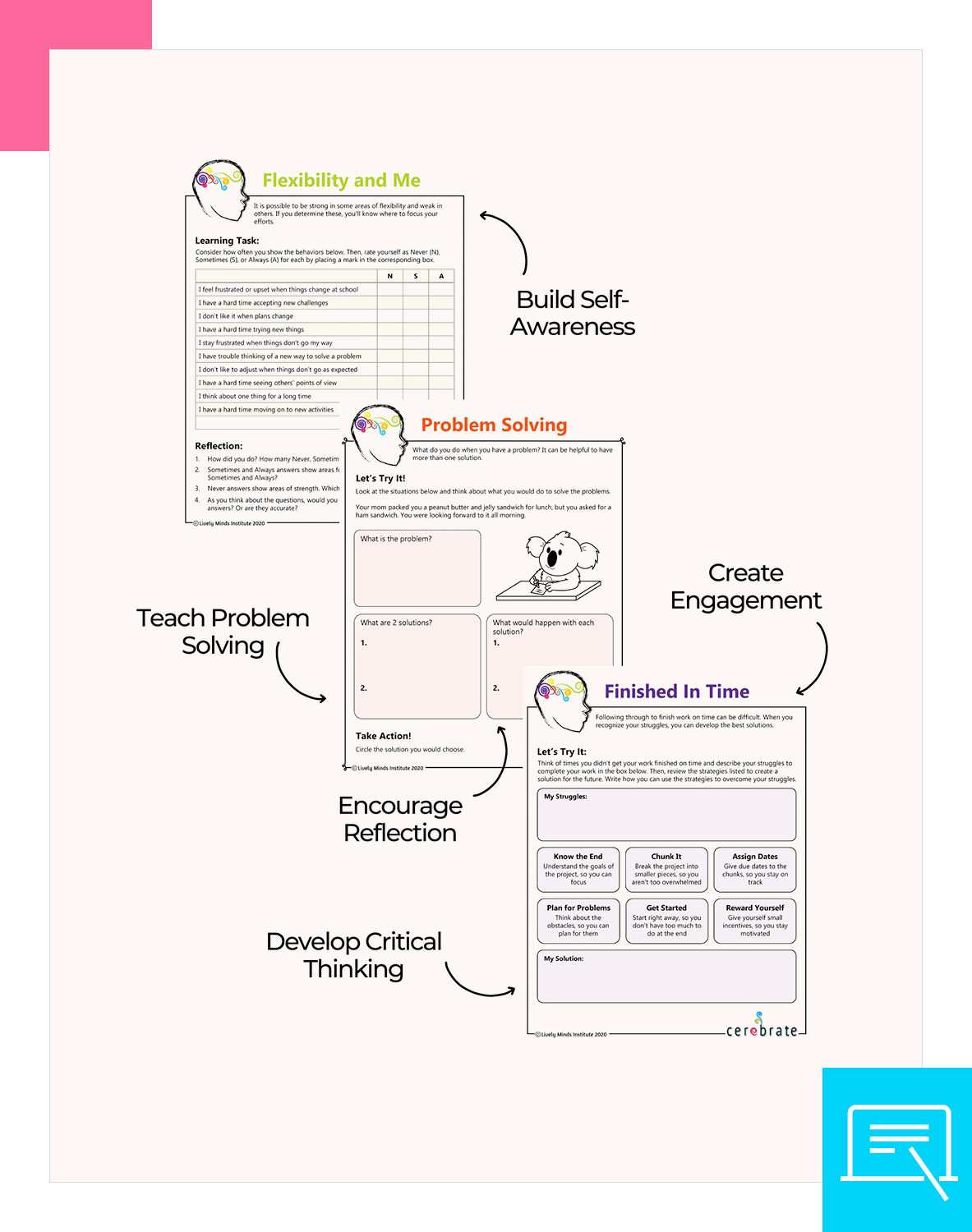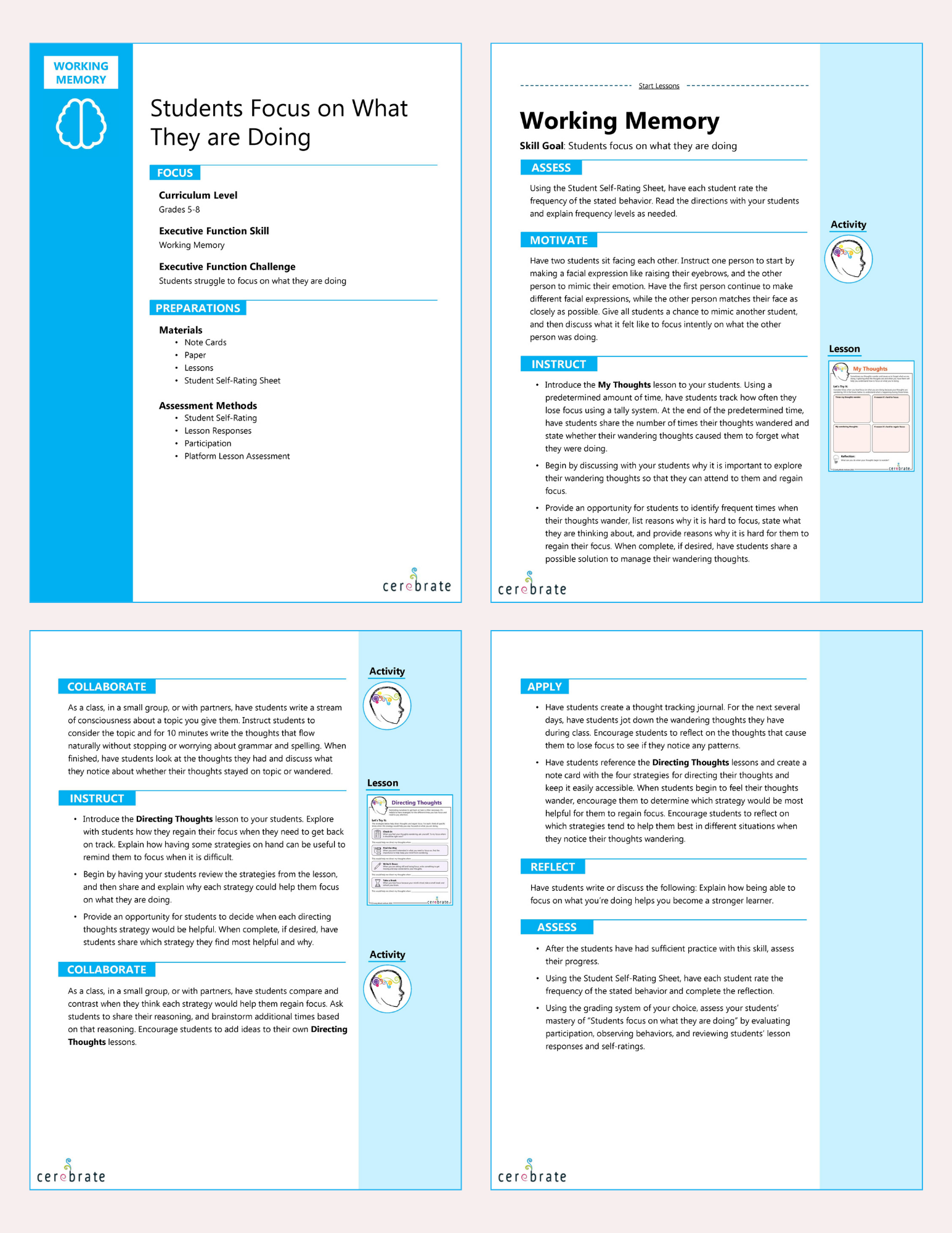Lessons.
Target instruction to meet student need
Cerebrate Lessons
Help students:
- Build self-awareness
- Create engagement
- Develop critical thinking
- Teach problem solving
- Encourage reflection
Cerebrate lessons are engaging, easy to use, and divided into three levels – grades 1-4, grades 5-8, and grades 9-12. Each level has hundreds of lessons that address 64 unique challenges, and teachers can customize each student or class curriculum by simply choosing the most significant challenges. This allows for targeted instruction that addresses the struggles standing in the way of learning success.
Educator Guides
Provide teachers with:
- Clear learning objectives
- Motivation activities
- Collaboration opportunities
- Implementation ideas
- Practical applications
Each executive function challenge has a unique Educator Guide that provides goals, objectives and the instructional steps for the lessons associated with that challenge. Educator guides also include activities to increase student motivation and ideas for collaboration as a class, in a small group, or with partners. In addition, educators will find suggestions for students to reflect on and apply their new knowledge, encouraging lasting skill development. The guides provide ideas and direction, while still allowing educators the flexibility to utilize the program in ways that will benefit their students.

What is Executive Function Learning?
Seven key components of executive function instruction are incorporated into the Cerebrate curriculum, and they are based on the leading research in the field. As you look at the lessons, you will notice the following best practices:
Assessment
Narrowing in on specific student struggles to know exactly what strategies should be used for improvement.
Motivation
Helping students recognize their individual accomplishments and growth to give them an intrinsic desire to improve.
Collaboration
Partnering with students to build strong habits by listening actively, asking questions, and thinking critically.
Engagement
Providing a variety of activities and questions for students to express themselves, maintain focus, and invest in their learning experiences.
Instruction
Teaching with a direct approach and repetitive practices to provide students opportunities to self-reflect and monitor their own progress.
Application
Giving students the ability to associate specific skills to their own circumstances by practicing skills in real-life situations.
Metacognition
Building awareness through self-reflection for students to respond to challenges in ways they are invested and interested in.

Cerebrate Scope
Our comprehensive lesson scopes provide a tool for educators to plan learning experiences according to need. The skill categorization and lesson objectives will provide a big picture of how each lesson relates to the associated skill, challenge, and desired behavior. Click on the links below to view the Cerebrate lesson scopes for each grade band.






